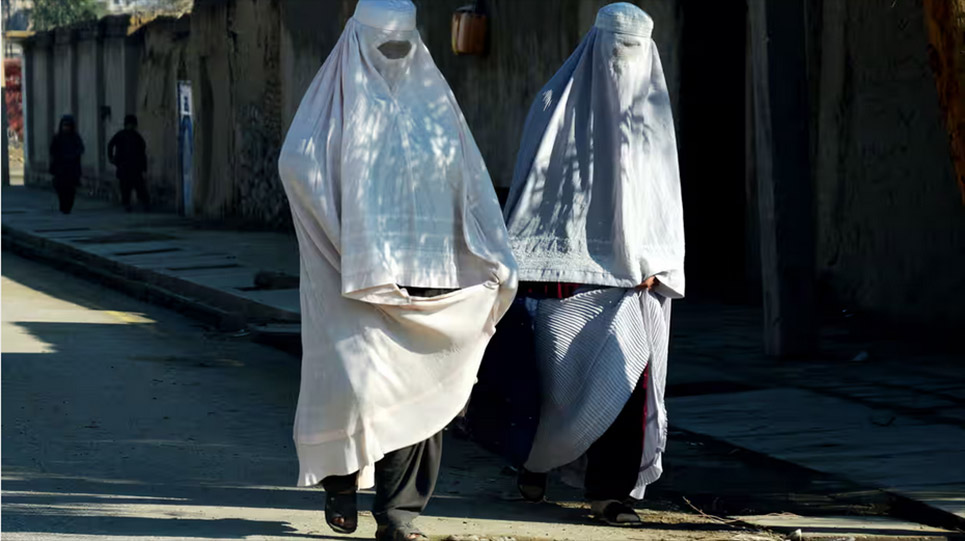
Activists say the announcement has condemned Afghan women to return to the darkest days of Taliban rule in the 1990s. Photograph: Sanaullah Seiam/AFP/Getty
Ruchi Kumar and Rukhshana
The Taliban’s announcement that it is resuming publicly stoning women to death has been enabled by the international community’s silence, human rights groups have said.
Safia Arefi, a lawyer and head of the Afghan human rights organisation Women’s Window of Hope, said the announcement had condemned Afghan women to return to the darkest days of Taliban rule in the 1990s.
“With this announcement by the Taliban leader, a new chapter of private punishments has begun and Afghan women are experiencing the depths of loneliness,” Arefi said.
“Now, no one is standing beside them to save them from Taliban punishments. The international community has chosen to remain silent in the face of these violations of women’s rights.”
The Taliban’s supreme leader, Hibatullah Akhundzada, announced at the weekend that the group would begin enforcing its interpretation of sharia law in Afghanistan, including reintroducing the public flogging and stoning of women for adultery.
In an audio broadcast on the Taliban-controlled Radio Television Afghanistan last Saturday, Akhundzada said: “We will flog the women … we will stone them to death in public [for adultery].
“You may call it a violation of women’s rights when we publicly stone or flog them for committing adultery because they conflict with your democratic principles,” he said, adding: “[But] I represent Allah, and you represent Satan.”
He justified the move as a continuation of the Taliban’s struggle against western influences. “The Taliban’s work did not end with the takeover of Kabul, it has only just begun,” he said.
The news was met by horror but not surprise by Afghan women’s right groups, who say the dismantling of any remaining rights and protection for the country’s 14 million women and girls is now almost complete.
Sahar Fetrat, an Afghan researcher at Human Rights Watch, said: “Two years ago, they didn’t have the courage they have today to vow stoning women to death in public; now they do.
“They tested their draconian policies one by one, and have reached this point because there is no one to hold them accountable for the abuses. Through the bodies of Afghan women, the Taliban demand and command moral and societal orders. We should all be warned that if not stopped, more and more will come.”
Since taking power, in August 2021, the Taliban has dissolved the western-backed constitution of Afghanistan and suspended existing criminal and penal codes, replacing them with their rigid and fundamentalist interpretation of sharia law. They also banned female lawyers and judges, targeting many of them for their work under the previous government.
Samira Hamidi, an Afghan activist and campaigner at Amnesty International, said: “In the past two and half years, the Taliban has dismantled institutions that were providing services to Afghan women.
“However, their leader’s latest endorsement of women’s public stoning to death is a flagrant violation of international human rights laws, including Cedaw [the Convention on the Elimination of All Forms of Discrimination against Women].”
Hamidi said Afghan women were now in effect powerless to defend themselves from persecution and injustice.
In the past year alone, Taliban-appointed judges ordered 417 public floggings and executions, according to Afghan Witness, a research group monitoring human rights in Afghanistan. Of these, 57 were women.
Most recently, in February, the Taliban executed people in public at stadiums in Jawzjan and Ghazni provinces. The militant group has urged people to attend executions and punishments as a “lesson” but banned filming or photography.



